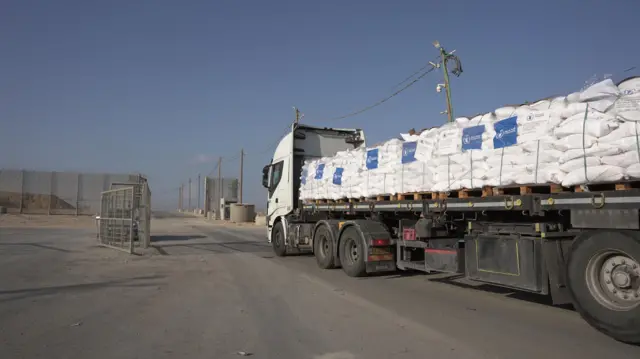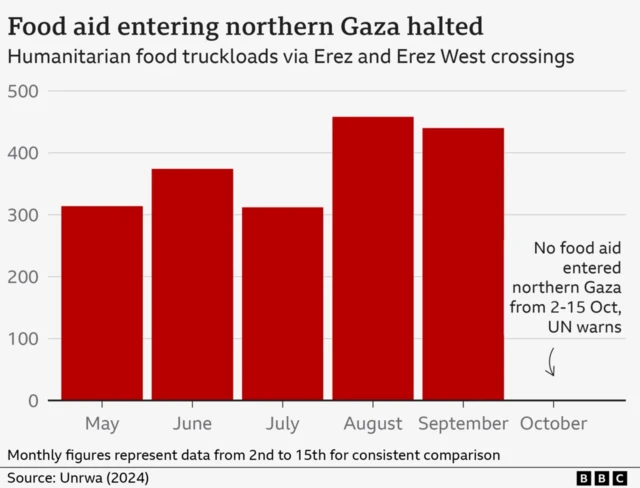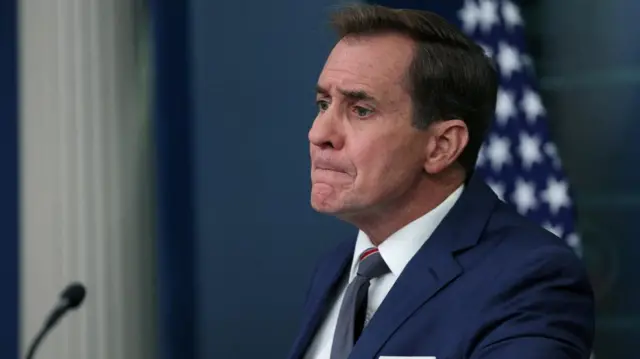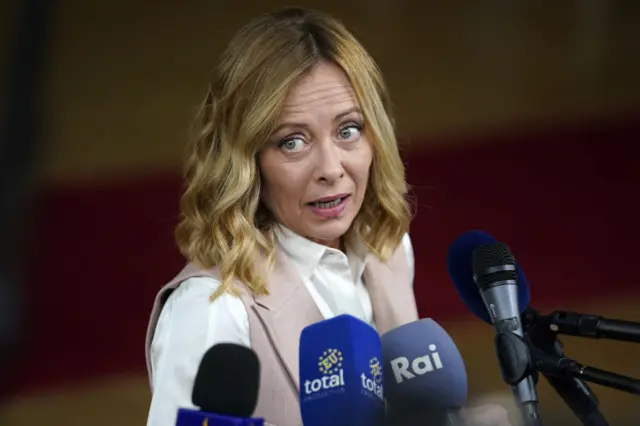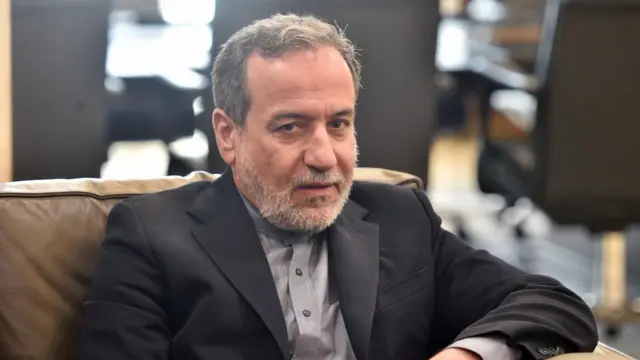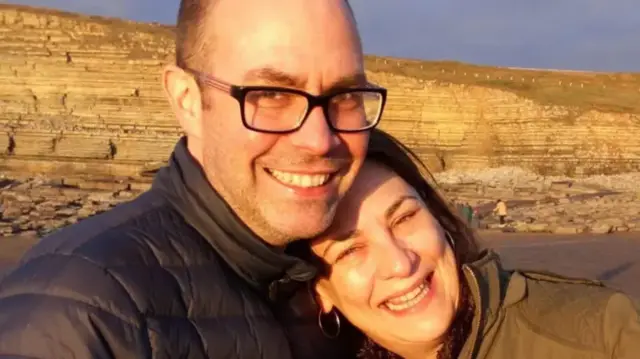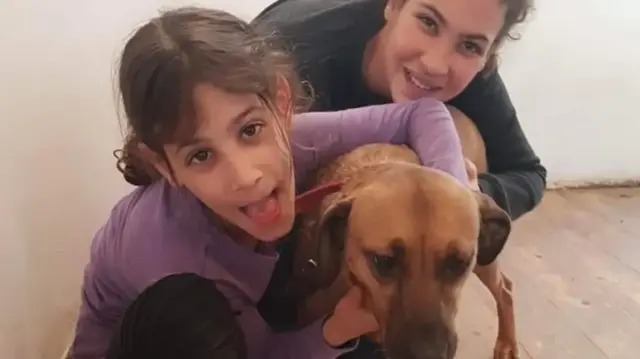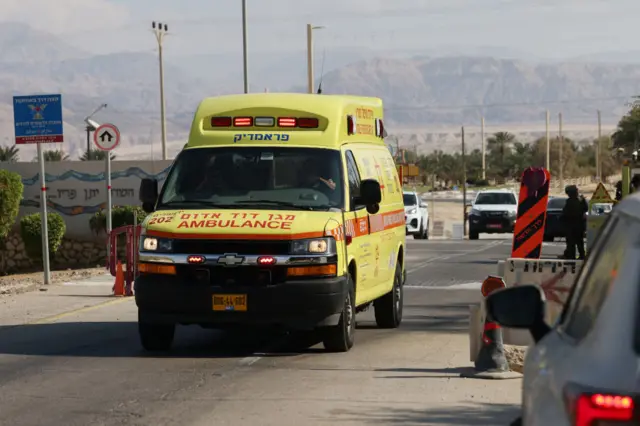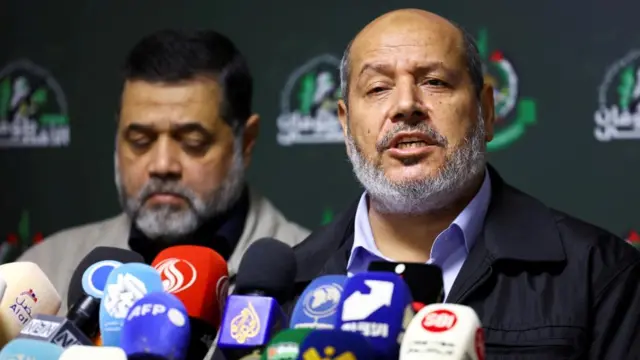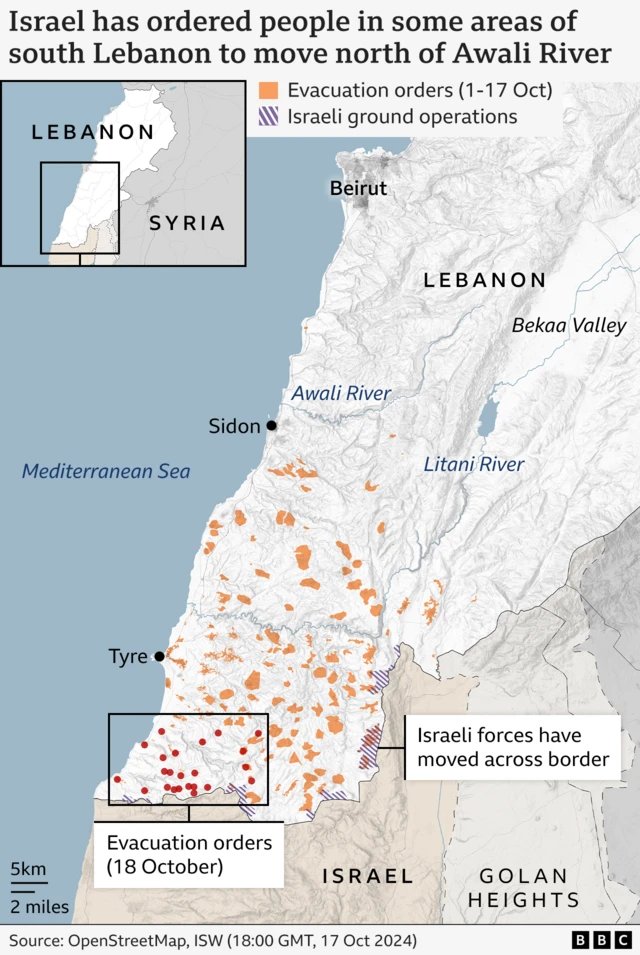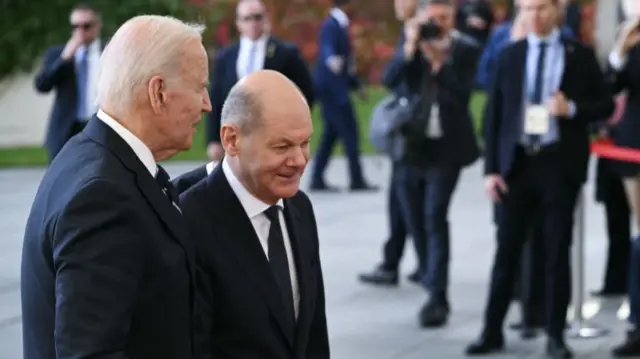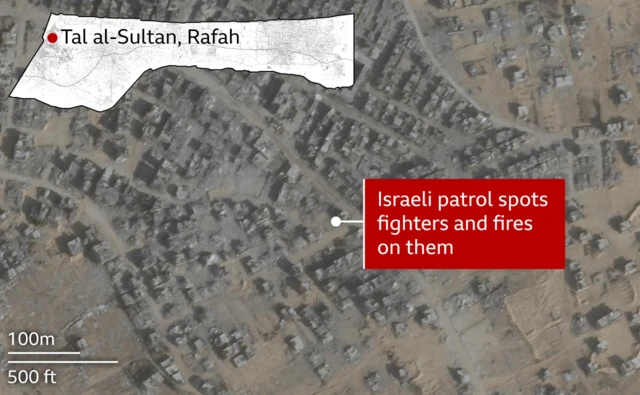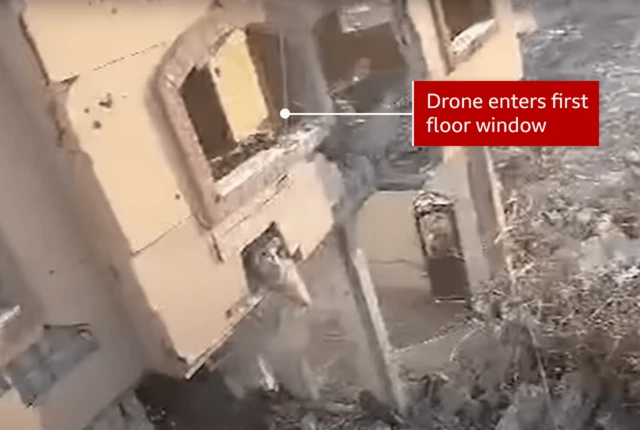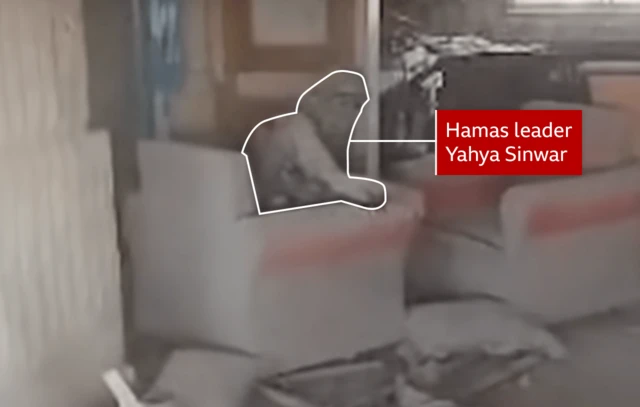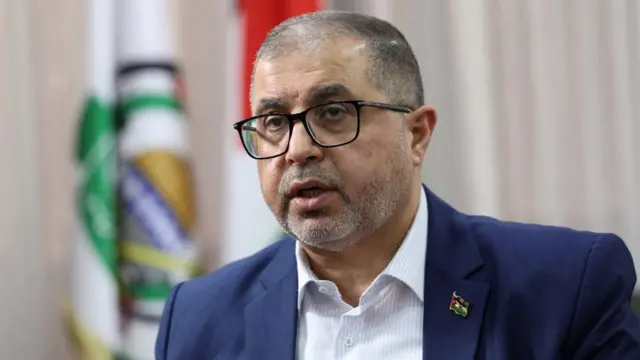Israeli minister confirms blockade on Northern Gazapublished at 16:04 BST 18 October 2024
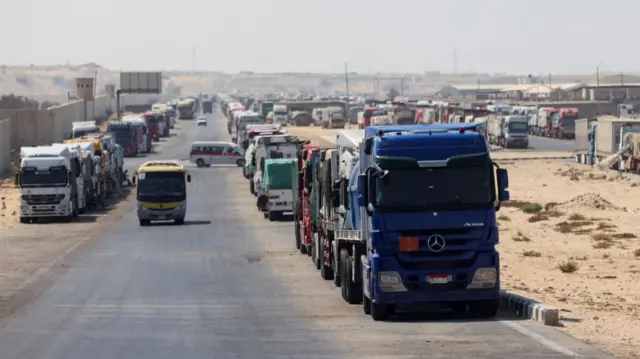 Image source, Reuters
Image source, ReutersIsrael has been urged to facilitate the access of more aid into Gaza
The Israeli minister for diaspora affairs, Amichai Chikli, confirms that Israel's government has imposed a blockade on northern Gaza.
"We've created a blockade with our forces. We allowed the civilian population to escape into the safe zone, and we prevented supply to enter the blockade region," Chikli tells BBC Newshour.
The minister says the blockaded area - which includes Jabalia, Beit Hanoun and Beit Lahia - was a "very specific region where Hamas was trying to recover its administration and its military capabilities".
He insists the practice is "legal according to international law" and "a well-known and relevant practice to use in a war against a terror organisation", as he dismisses criticism from the US.
Washington earlier this week threatened to cut down some military aid to Israel unless the government boosted humanitarian aid access in Gaza.
